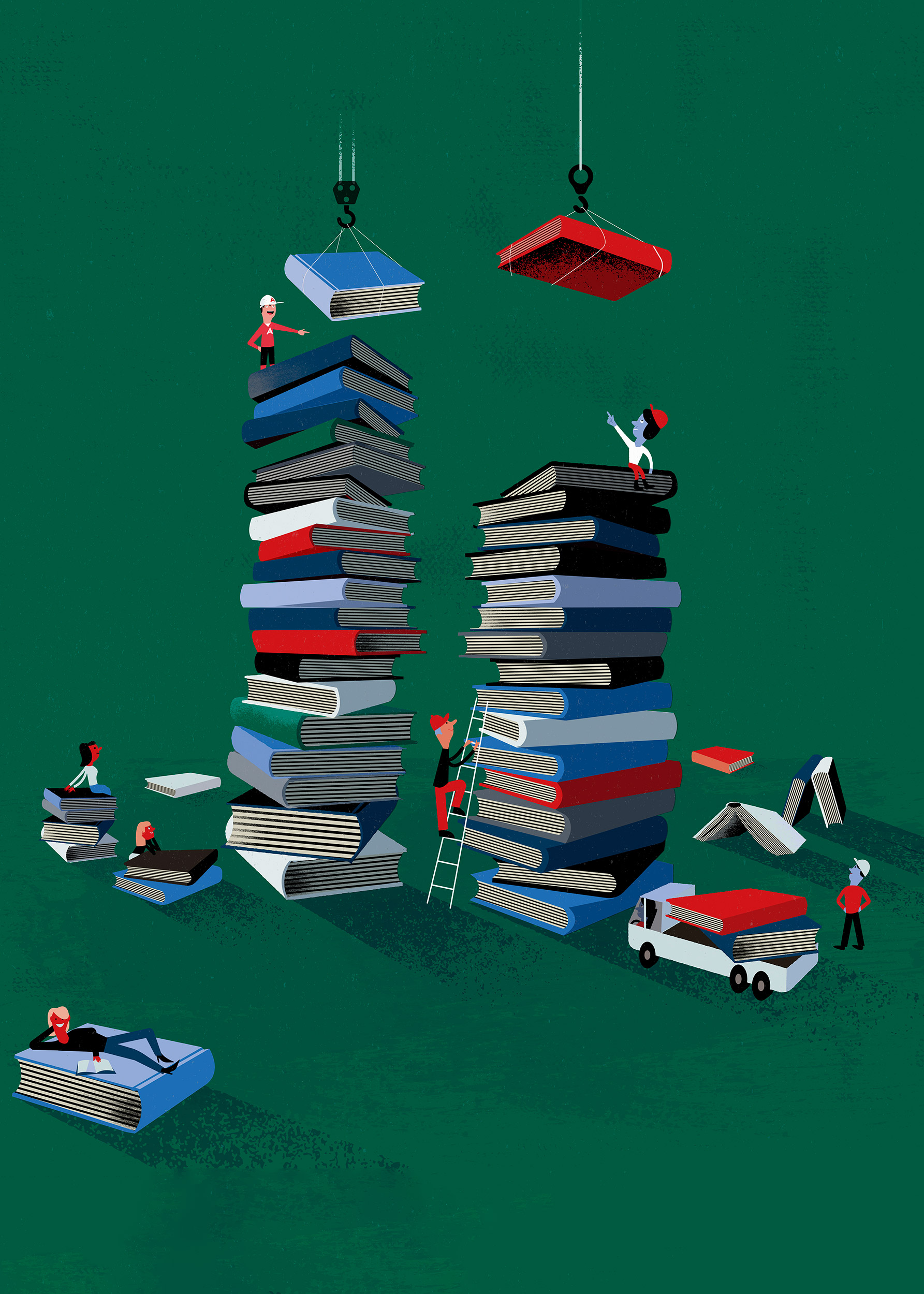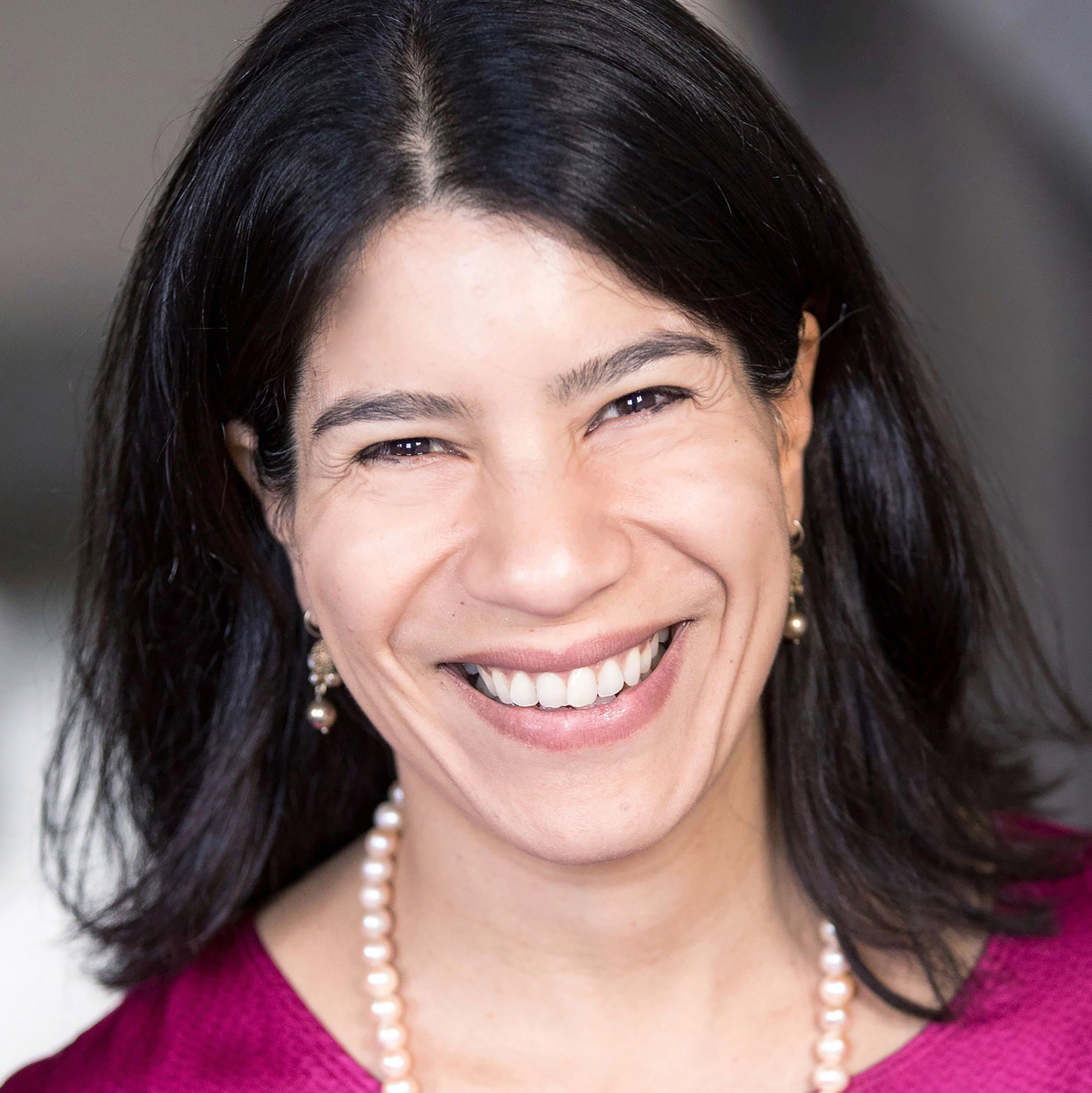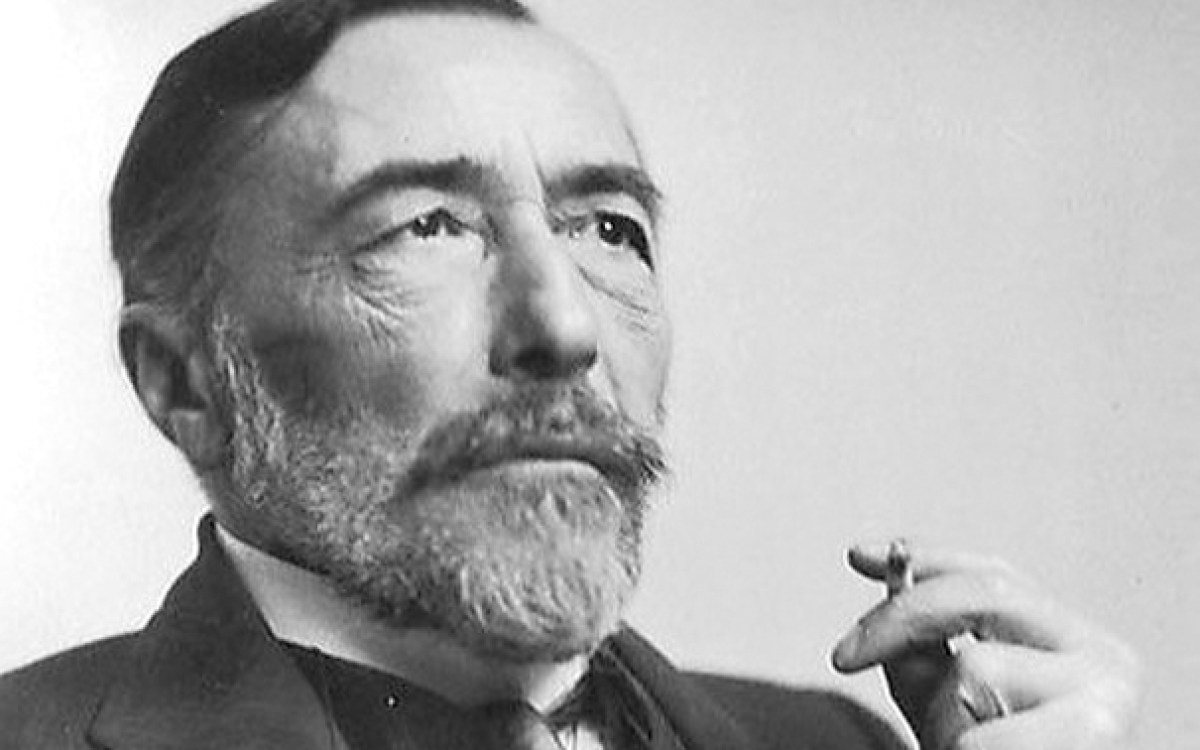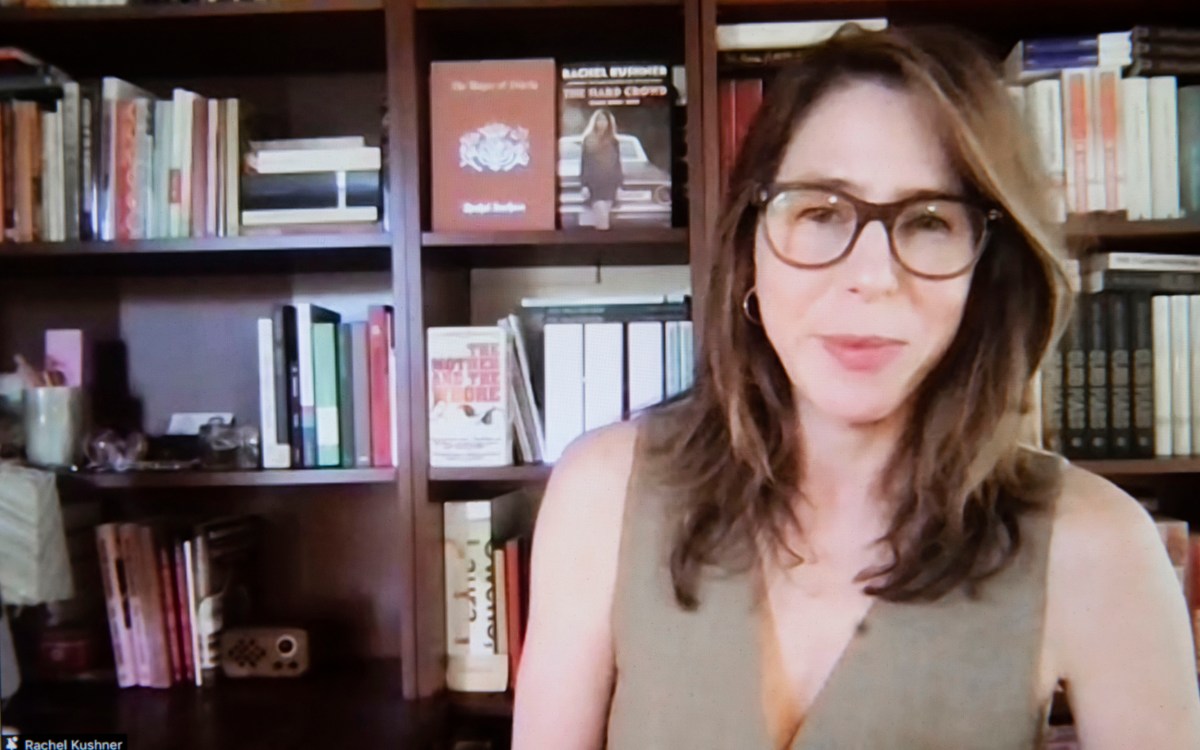How to pick a literary winner
Harvard’s Maya Jasanoff, chair of Booker Prize panel, offers a peek behind verdict

Illustration by Jens Magnusson
What is it like to read a book every day for several months so you can hash out with fellow judges which title deserves one of the most prestigious awards in literature? As chair of the judging committee for the 2021 Booker Prize, Maya Jasanoff knows the process inside and out. The panel of five readers, tasked with determining the best English-language novel published in the U.K. or Ireland in the past year, announced their shortlist of six finalists, whittled from a longlist of 13, in September. On Wednesday they awarded the prize to “The Promise,” by the South African writer Damon Galgut. Jasanoff, Harvard’s Coolidge Professor of History, spoke with the Gazette about her role as chair, how books “resonate differently over time,” and common strengths among this year’s finalists. Interview was edited for clarity and length.
Q&A
Maya Jasanoff
GAZETTE: What was your reaction to being asked to chair the committee?
JASANOFF: I felt astonished and honored. Like many people interested in fiction, I’ve been aware of the Booker Prize for most of my reading life. I’ve kept track of who’s won and I’ve read a lot of the winners. It’s a rare prize that has genuine international reach. I believe I’m the first non-Brit and the first person of Asian origin to have the role, so that made it particularly special. It’s also a prize that was historically anchored in the United Kingdom, and I am a scholar of British history and literature, so that gave it added meaning.
GAZETTE: Can you talk a bit about the process?
JASANOFF: What’s distinctive about the Booker Prize as compared to some other literary prizes is that all of the judges read all of the books — there’s no triage that happens by anyone other than the judges, and no dividing up of the books among the judges. We read all of them and discussed them in the order that they arrived. We received batches of books on a rolling basis and then had a monthly meeting at which we would discuss anywhere from 20 to 30 books depending on how far we had gotten. In the course of those meetings, we gradually eliminated the titles we weren’t going to revisit. Once we had done that six or seven times, we headed into the longlist process with about 30 books that we had kept in the mix. It was from those titles that we formulated our longlist of 13.

GAZETTE: You’ve said you were reading essentially a book a day from late December through July. What was that like?
JASANOFF: You learn that you actually can read a book every day, which is important, because the volume of books is so high. Knowing that I was going to chip away at it every day helped make the appearance of these big boxes on my doorstep each week seem a little bit less intimidating. And the fact that it was during the pandemic also made a huge difference, because I knew that I was going to have time available to structure as I wanted. I’m currently writing something about the ways historians craft stories, so it also seemed a timely moment intellectually to spend a lot of time reading novels.
GAZETTE: Were you rereading books as well?
JASANOFF: Yes. I tried to pace it out so that there would be enough time in July to revisit the books, particularly from earlier in the process, before going into the longlist discussion. It was challenging to find time to reread as well as to complete the reading at hand. Once the longlist was determined, we then reread all of those titles to determine the shortlist. And then between the announcement of the shortlist and the winner we reread all of the books on the shortlist. One of the interesting things about the process is that books resonate differently over time depending on how often you read them and what you’re reading them against. I started to realize how it felt to read a particular book at a different time, or in connection with other books.
GAZETTE: What kinds of qualities were you looking for when making your selections?
JASANOFF: It was not really about looking for a particular thing, but about how we responded to what we read. One of the things that I became much more aware of throughout this process is the way in which reading really is a kind of exchange between what an author is saying and how a reader is receiving it. So, I don’t think we’re explicitly looking for one particular thing. Frankly, I think if one is, one may end up being pretty disappointed. One of the challenges for me was to remain open-minded; to be able to pick up every single book, even if I was tired of reading, and be open to the idea that this could be an amazing book that knocks my socks off. So, what do those books have in common? I think that we ended up, across our various reading tastes and styles, converging on a few things that we felt make books stand out. Those included whether the book has some kind of characterizations or settings that are gripping or particularly well-realized; whether there’s a story that the author is telling that is in some way fresh and feels unfamiliar; the quality of prose, both on the sentence level and as extended across a novel-length work; and whether there are ideas animating the book that make it something that you can chew on.
“Disagreements came up more than I might have expected, but when they did, they always invited meaningful conversation about what it is that’s making books achieve what they do.”
GAZETTE: What are some of the specific duties of the chair?
JASANOFF: It was up to me to decide how the meetings went. I framed our discussions by asking everybody to name the three books they admired most and then to mention a couple others they wanted to put on the table for discussion. Similarly, when we got to the longlist and the shortlist, I asked everybody to send their rankings to Gaby Wood, director of the Booker Prize Foundation. She compiled them and shared them back with us, and those rankings helped us frame those discussions. The chair also has some responsibility for establishing the tenor and tone of discussions. My own goal, honed from University committee work, was to ensure everybody felt as if they’d been able to say what they wanted to say, whether or not everyone agreed with it. I feel like processes that have a degree of subjectivity in them really benefit from people being able to share what’s on their minds. I also wanted to be sure that every book that someone was passionate about got an airing.
GAZETTE: Can you shine some light on the deliberation process?
JASANOFF: I think a previous chair has said it’s like being in the best possible book group. What I particularly relished about it is that the judges are all very serious readers who are coming to it from different professions and bringing different perspectives. I’m coming from a university, and while it is common for us to spend time as academics sitting around discussing books, we have some parallels in our frames of reference. I was particularly interested to get the chance to talk about these books with people who, again, are incredibly engaged readers but who have a greater diversity of perspectives than I might find among my friends. We definitely disagreed. A book that I hated someone else might have loved. A book they hated I might have loved. Disagreements came up more than I might have expected, but when they did, they always invited meaningful conversation about what it is that’s making books achieve what they do. Any given judge would not have picked at least one of the books on the longlist. But equally, every single book had passionate supporters. And I think that any book that invites that set of reactions is obviously achieving something.
GAZETTE: Did any of those disagreements change your mind about a particular book?
JASANOFF: I definitely looked at books I may not have liked differently after I heard people’s positive responses to them, there’s no doubt about that. In terms of the books I liked, after discussing them I also found myself understanding the criticisms that people had. I think that’s where the rereading is really important. Because you read it the first time and you have one set of reactions. Then you hear what other people have to say about it, and you get to revisit it with the benefit of their impressions framing your rereading.






